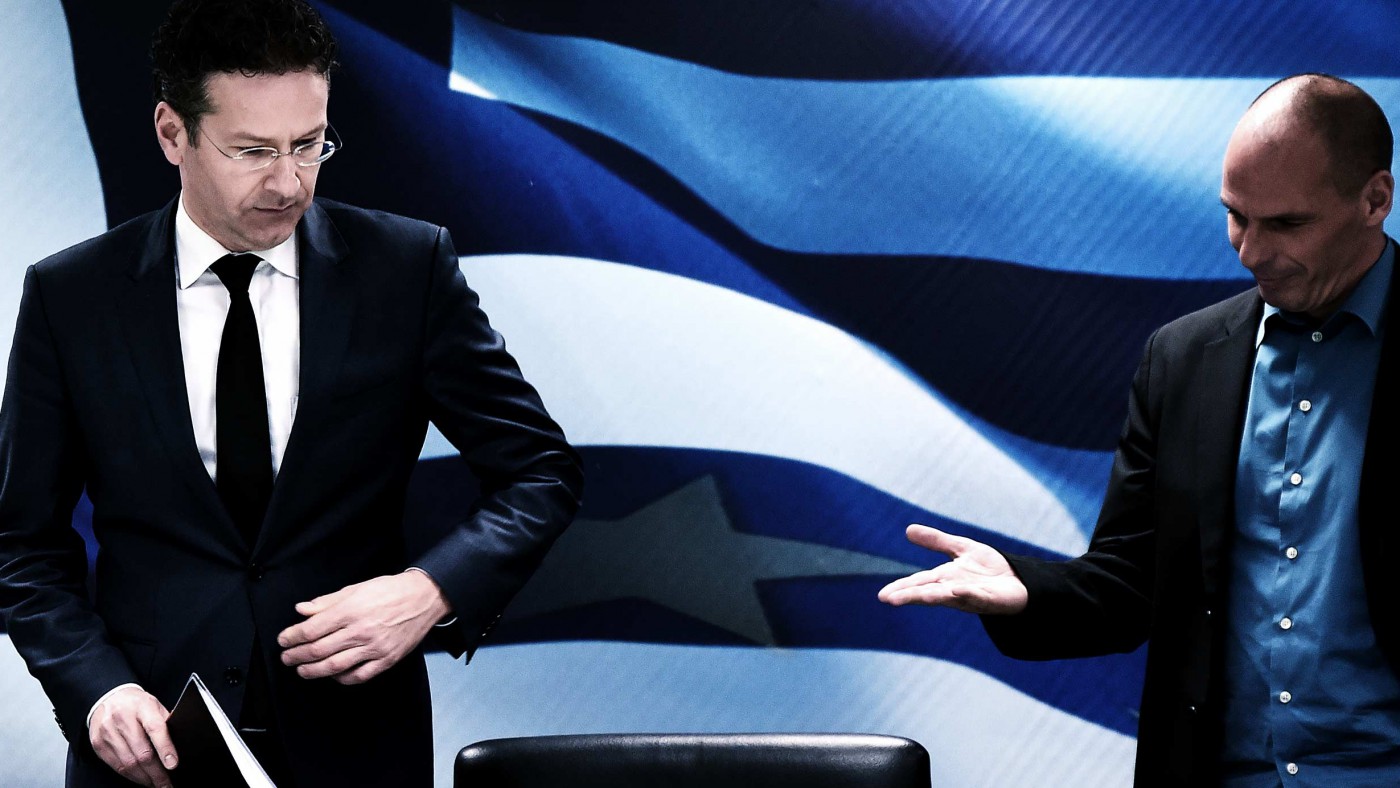“Time-waster”, “gambler” and “amateur” — and those were only the insults the press has felt able to publish before the 9 o’clock watershed. The criticism of Greek finance minister Yanis Varoufakis at today’s Eurogroup in Riga was so extreme that the lexicon of diplomatic understatement had to be expanded to include “hammered”. One wonders whether a senior minister of another country has been talked to in this way since…what? The 1870s?
In those days the next step might have been a gunboat. These days the threat was that if the Greeks didn’t sort themselves out, the next Eurogroup meeting might have to be held in Athens. The Greeks totally reject that idea, regarding it as akin to inviting their overlords to come over for an inspection.
It turns out that being a “rock star” may not be enough in a finance minister. Other finance ministers might hope that, in addition to your day job of having your photo in the paper and writing blogs, you might occasionally… you know… be a finance minister. And, oddly enough, telling everyone else that they are economic ignoramuses and the policy approach they have adopted is a failure and half of them are broke themselves anyway — whilst your allies tell them they want to melt down the bodies of the Greek people to make soap from their body fat, that Greece will send ISIS terrorists through to them, and that many of them owe you hundreds of billions in compensation for war crimes — doesn’t go down too well.
I know it’s wicked and unreasonable for folk to think Greece might at least try to be able to repay some of its past debts before they lend it any more money. And I know it’s very thin-skinned of them to take umbrage if Greek government ministers call them Nazis or (in the case of Poland) Nazi allies every few days. But sometimes it’s necessary to deal with foolish and unpleasant people and not to judge an entire country by the politicians that happen to be in charge at any one time.
From the perspective of the rest of the Eurozone, that’s what they are having to bite their tongues, hold their noses and do.
The bizarre thing about this is that — bonkers, vain and inept though they may be — these Greek ministers are at least half right. The Greeks should never have agreed to receive their “bailout” in 2010. The consequences have been disastrous for them. If they had not had the bailout, there’s every chance they could have defaulted within the euro.
Now, however, defaulting will mean defaulting upon their allies. Defaulting on the governments of other countries is the kind of thing that, once upon a time, meant the gunboats were coming. Nowadays it will mean Grexit is just around the corner.


